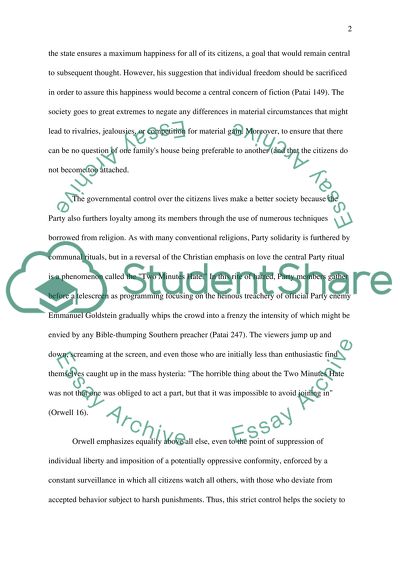Cite this document
(Orwell's Novel 1984 Book Report/Review Example | Topics and Well Written Essays - 1750 words, n.d.)
Orwell's Novel 1984 Book Report/Review Example | Topics and Well Written Essays - 1750 words. https://studentshare.org/literature/1510588-in-orwells-novel-1984-he-protrays-life-as-undeisable-under-governmental-control-however-this-also-made-a-better-society
Orwell's Novel 1984 Book Report/Review Example | Topics and Well Written Essays - 1750 words. https://studentshare.org/literature/1510588-in-orwells-novel-1984-he-protrays-life-as-undeisable-under-governmental-control-however-this-also-made-a-better-society
(Orwell'S Novel 1984 Book Report/Review Example | Topics and Well Written Essays - 1750 Words)
Orwell'S Novel 1984 Book Report/Review Example | Topics and Well Written Essays - 1750 Words. https://studentshare.org/literature/1510588-in-orwells-novel-1984-he-protrays-life-as-undeisable-under-governmental-control-however-this-also-made-a-better-society.
Orwell'S Novel 1984 Book Report/Review Example | Topics and Well Written Essays - 1750 Words. https://studentshare.org/literature/1510588-in-orwells-novel-1984-he-protrays-life-as-undeisable-under-governmental-control-however-this-also-made-a-better-society.
“Orwell'S Novel 1984 Book Report/Review Example | Topics and Well Written Essays - 1750 Words”. https://studentshare.org/literature/1510588-in-orwells-novel-1984-he-protrays-life-as-undeisable-under-governmental-control-however-this-also-made-a-better-society.


